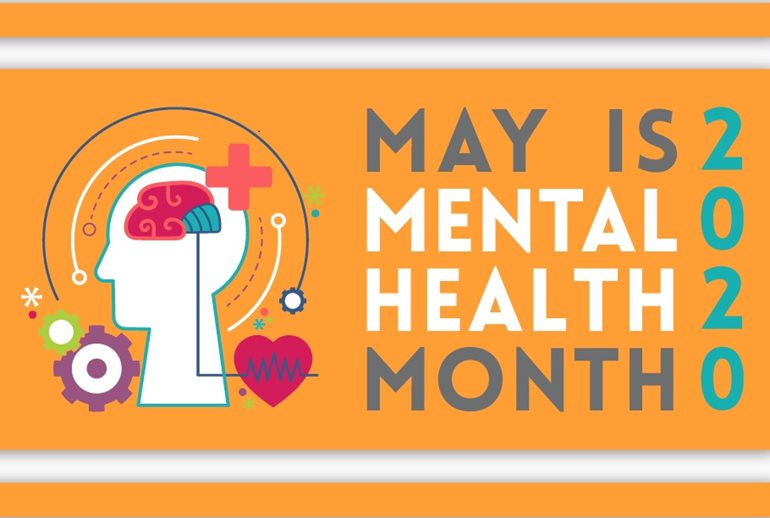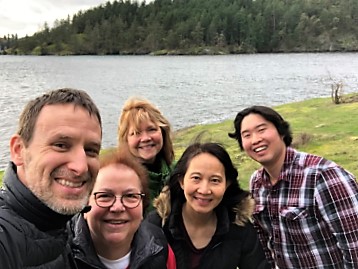By N.L. Sweeney
In recognition of national Mental Health Awareness Month — and to bring attention to the mental health impact the coronavirus pandemic is having on people at UW Bothell and around the world — Hoa Appel is working with colleagues at UW Bothell to organize a number of virtual activities on May 18, Behavioral Health Awareness Day.

Appel, a lecturer in UW Bothell’s School of Nursing & Health Studies, is supported in this work by a Learning Community, a university-funded group of faculty and staff who come together to co-learn. In this case, the subject is behavioral health awareness, which she defines as mental health and substance use.
According to Appel, this national month of awareness couldn’t have come at a better time.
“Mental health awareness is more important now than ever,” said Appel, citing the remote environment students, faculty and staff are working in due to COVID-19. “Behavioral Health Awareness Day is about starting the conversation about mental health so that we can begin to address it as a community.”
Bringing people together

To attract and engage a broad spectrum of people, the events planned for Behavioral Health Awareness Day will incorporate perspectives from across multiple academic and professional disciplines.
The organizing team reflects this interdisciplinary approach. In addition to Appel, it includes Annie Bruck, a senior lecturer in the School of Nursing & Health Studies; Cheryl Gordon, a lecturer in the School of Education Studies; Kosuke Niitsu, assistant professor in the School of Nursing & Health Studies; Rosemary Simmons, the director of the Counseling Center at UW Bothell; Ana Thompson, the learning and access designer in the Office of Digital Learning & Innovation; and Bryan White, a senior lecturer in the School of STEM.
Importantly, the main goal of this day’s events is not to solve mental health issues but rather to bring greater awareness to them. “Mental health is important to everyone. All of us feel the effects of the pandemic on our mental health,” said Appel. “With the pandemic, there has been more social isolation which leads to an increase in substance use, mental health concerns and suicide.
According to Niitsu, sometimes just knowing you’re not alone in having difficulties dealing with the pandemic is the most important realization. “By acknowledging that responding to our situation with anxiety, stress and depression is normal,” said Niitsu, “we hope to help reduce that stress.”
Activities will feature, among other events, a remote mindfulness exercise led by Niitsu, a presentation on the resources on campus by Thompson, a presentation on anxiety and depression by nursing students and a panel where students will share their experiences with mental illness.
Connecting in the classroom

Drawing focus to mental health is not limited to events on May 18. As Appel said, “the conversation about mental health has already started for our faculty and staff members.”
For Niitsu, this has meant allocating time in his Advanced Pathophysiology, Pharmacology and Health Assessment class for people to connect. “At the beginning of our course, I had the students take some time to talk and get to know each other,” said Niitsu. “This kind of social connectedness is so important right now.”
In this same course, Niitsu used the opportunity of talking about the lungs and heart to do a mindful breathing exercise with his students. “It’s easy to forget how important the little things are,” said Niitsu. “Exercises like meditation and mindful breathing are really helpful when you’re feeling anxious and stressed like many students are right now.”
Appel, too, has emphasized connectedness in her course, Principles of Health Research, asking her students to form into small groups to talk about the coping mechanisms they’re using to support themselves while in this quarter’s remote learning environment.
“The conversation around mental health shouldn’t be just for events like Behavioral Health Awareness Day,” said Appel. “They should take place in the classroom, too.”
Starting the conversation
In addition to work in the classroom and events set for Behavioral Health Awareness Day, Appel, Niitsu and Bruck also came together to compose a list of steps people can take to improve their mental health.
“Students and others should understand that many more people have mental illness than they know,” said Appel. “By providing awareness and education about behavioral health — including mental health and substance use— we hope to raise awareness of a number of things concerning mental illness, such as that many mental illnesses are treatable.”
“The COVID-19 crisis has been a horrible experience for most of us,” she said, “but one positive outcome is that mental health is now at the forefront.”


